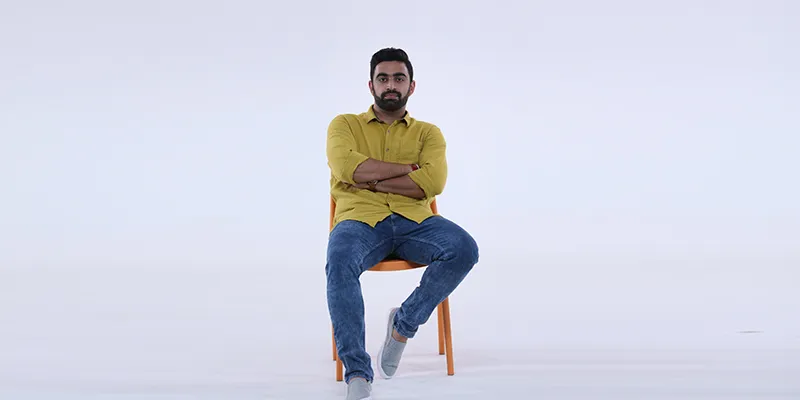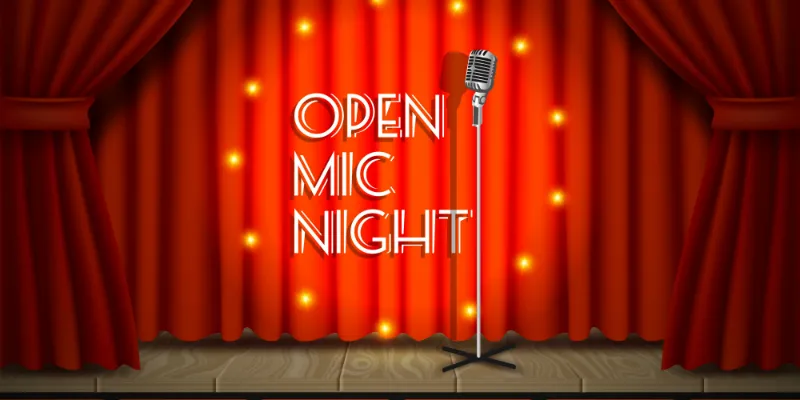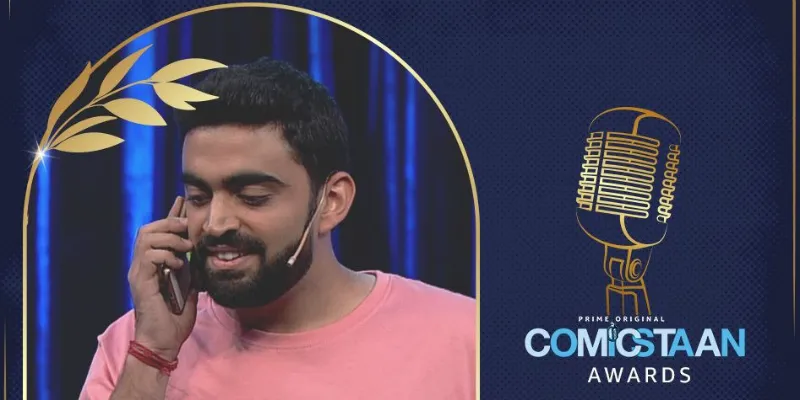‘I am a storyteller’: Comicstaan’s Rahul Dua offers a sneak-peek into the world of comedy
Rahul Dua, who shot to fame after participating in the standup comedy show Comicstaan on Amazon Prime, speaks about how the journey of a comedian is akin to being an entrepreneur.
Standup comedy is a lot like entrepreneurship. Framing new material for a show or a sketch is just like starting a new venture. Both require days and weeks of developing a unique ‘brand’ and developing a certain ‘style’ of communication to connect with the audience. You also need to try, fail, learn, and try again to hit success. Sounds a lot like the journey of an entrepreneur, doesn’t it?
YS Weekender caught up with Rahul Dua, first runner-up of Amazon's stand-up reality show Comicstaan, to understand know how he is cruising through his own entrepreneurial journey in the comedy world of India.

How it all began
Surprisingly, Rahul Dua wasn't always a comedian. “It just happened to me,” he says. “I was the ‘uncool’ kid who was always engrossed in studying. I was a school and college topper too.”
Later, Rahul went on to study electronic and communication engineering at Thapar University and pursued an MBA from the Faculty of Management Studies (FMS), University of Delhi.
Rahul started working as a credit risk officer in Mumbai and then went on to become an investment banker. This is when he had his first brush with standup comedy.
“The job was hard, but the best time of my day became the 10-minute break, during which we would make fun of our jobs. I was the clown of the group,” he says.
Soon, Rahul began to unwind at open mics during his weekends. While listening to amateur performers during these live shows at coffee houses, nightclubs, comedy clubs, institutions and pubs, Rahul decided to try it out for himself. And during his skit in August 2015, he won the over the audience. Rahul had found a new hobby.
Eventually, Rahul was bitten by the entrepreneurial bug and quit his job with two startup ideas in mind. One was on solar panels and the other was on kids’ sports spaces. However, he never really went ahead with either.
Discovering that open mics were not paying him anything and that he needed funds to survive, Rahul began working in media sales at Star TV Network. He says, it suited his ‘personality’ and gave him time to write jokes too. “It took me a year or two to churn out material worth one hour of stand-up,” he remembers.
He worked at the network for around two years and by then, was ready to launch into his new career. “I had enough content to pursue my hobby-turned-passion fulltime,” said Rahul.
Coincidently, shortly after quitting his job, he heard of Comicstaan auditions. The rest is history. His Instagram followers rose from a mere 1,420 to 50,000 the night before the launch of Comicstaan in July 2017.
Open mic nights

“The shows and open mics give you five to 10 minutes to prove that you are funny,” says Rahul. While open mic didn’t pay a dime before Comicstaan, the shows at cafés or restaurants would pay him anywhere between Rs 3,000 and Rs 5,000. “I could manage because I was living with my relatives, and did not have to pay rent,” he says.
Genesis of jokes
“I am not a comedian, but a storyteller,” says Rahul, “I usually make a small note of instances, but I don't really write jokes. This process is different with each comedian.”
In the initial year, it took him more than six months to come out with his five-minute stand-up for an open mic. “Now the time has reduced, but it still takes months to prepare for one hour of a stand-up comedy session,” says Rahul.
Weekends at work
Unlike most people, weekends are the working days for Rahul, as he travels across the country to perform at corporate shows, private shows, colleges and more. “On free weekends, I pick a venue and start selling tickets for an independent show of mine,” says Rahul. The rest of the week is spent on homework and open mics.
How does a comedian get work?

There are talent management agencies, which stay in touch with the artists for shows. “But, that’s only after you have become famous,” Rahul says.
Rahul feels that India is about 40 years behind from countries like the US in the comedy business. “We all are still exploring and trying to take a cue from mature markets in terms of content, as well as formats,” he says.
Rahul’s favourite comedians are Dave Chappelle, James Acaster, and Bill Burr. Closer home, he likes Kanan Gill and Sumit Anand.
Favourite jokes
He has many favourite jokes, but his top two picks are from a set by a comedian, Gary Gulman, where he recounts the thrilling tale of how postal code abbreviations came to be, and another by his favourite Bill Burr, titled, ‘I'm Sick of Michelle Obama’.
Mentorship
“There is nothing called mentorship in the comedy industry,” says Rahul. “Everyone is on their own. The stand-up space has become so competitive lately that there is nobody to give you feedback or to guide you. The comedy business is very nascent for everyone, but the inherent nature of this industry is very insecure.”
He records all his performances and listens to them in order to improve his own act.
A comedian can have a dull life too
Rahul said the worst part of pursuing this journey is isolation. “There are no offices for comedians,” he said. “It very difficult to be disciplined when you are working on your own. A joke can take days to complete, and you need to write them every single day.”
The young comic says that stress and anxiety is part of his daily routine. To unwind, he watches Netflix or movies and enjoys cooking. He also likes reading, cycling and painting.
The struggle
“The journey has taught me the value of money,” says Rahul.
According to him, it is not easy to have a steady income in this field, but things have improved for him since Comicstaan. “Earlier I would splurge on cabs, but now I use the metro, autos and bike-taxis, despite the fact that they mess up my hair,” laughs Rahul, who moved to Mumbai from Gurugram three months ago.
The way ahead
Going forward, Rahul hopes to hone his stand-up skills for a few more years. “My content is sub-par as compared to what is done overseas. I want to reach a particular level before I diversify,” he says.
His immediate plans are to start a YouTube channel of his own and launch his own sitcom.







